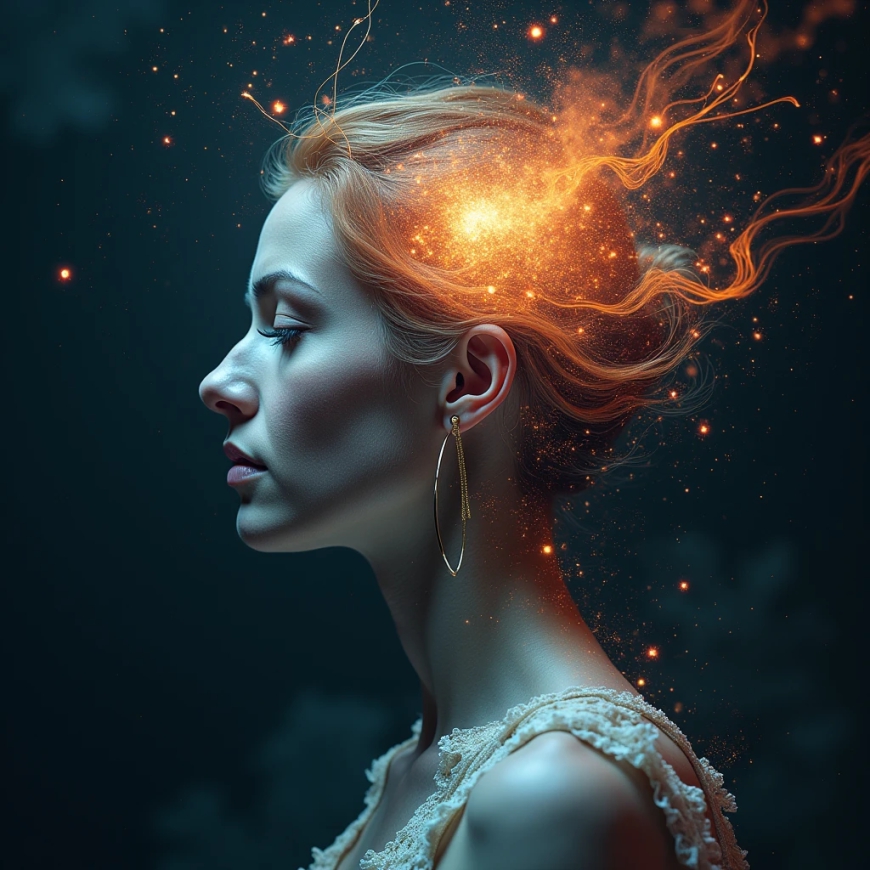What are hallucinations? Why do people hallucinate?
Suppose you are sitting on an easy chair and suddenly you see a snake moving around the corner of the balcony. You get scared and shout, ‘Snake! Snake!’. Others come running after hearing your screams. But they don’t see anything. Then you also look at the previous place and see that there is nothing there. You think the snake was there, but it has run away now. You get angry with the people in the house because they don’t believe you. Suppose, such incidents happen often.

Someday you may notice the presence of some people around you, who do not actually exist. Or maybe you see someone who has died a long time ago.
Tell me why this is happening?
Actually you are hallucinating. Hallucination is a mental problem.
When you have this problem, people experience strange things that do not actually happen. It is not just a matter of seeing, but you may hear many wrong things, sounds that no one may have made. Maybe it is hearing someone else's words. You may even feel someone else's touch. Or you may smell something whose source is not around.
These are hallucinations.
Hallucination is actually a wrong reaction of the brain. This reaction can make you see, hear, or feel something that is not really there. It can usually be expressed through any of the five senses. We have talked about sight, hearing, smell and touch, but even taste can be like this. You may be eating a freshly boiled egg, but you taste a rotten egg—this can also happen in the case of hallucinations.
Why do hallucinations occur?
There are several causes of hallucinations. The causes can be both physical and mental.
There is a mental illness called schizophrenia. People with this disease often hear other people's voices. They even feel the presence of multiple imaginary people around them. And they also talk to them.
People suffering from mania or depression or people under severe mental stress can also suffer from hallucinations.
People can also suffer from hallucinations due to various neurological problems. For example, epilepsy patients often suffer from hallucinations. The temporal lobe of their brain is damaged. As a result, they hear strange sights or sounds.
People suffering from Parkinson's disease often experience visual hallucinations. People suffering from dementia or Alzheimer's have brain damage, which is why they can also have hallucinations. Deep mental trauma or long-term mental stress are also among the causes of hallucinations.
Another cause of hallucinations is the effect of drugs. Just as it can be a drug, hallucinations can also occur under the influence of strong medications used in treatment.
Hallucinogenic drugs such as LSD or magic mushrooms can cause abnormal images to form in the brain of a person addicted to them. As a result, they can hallucinate.
Hallucinations can occur as a side effect of antipsychotic or sedative drugs.
Apart from this, hallucinations can also occur due to some physical reasons. For example, if the brain does not sleep for a long time, it can become confused, so it is not unusual to hallucinate. Children's brains are affected by high fever, which causes illusions, and they hallucinate.
If the body lacks water or nutrients, the brain cannot function properly, so people who are hungry and thirsty can also suffer from hallucinations.
Hallucinations have a big impact not only on the person, but also on the people around them and on their daily lives. It can sometimes become dangerous. Especially if the affected person thinks the hallucinations are real and believes them.
Let's say someone thinks that someone is always following them and can kill them if they get the chance. Such a person is always in a state of panic. Suicidal tendencies may arise due to panic.
Hallucinations are not completely curable. However, it is possible to identify and treat their cause. A person suffering from hallucinations should be taken to a psychiatrist or psychologist immediately for treatment or psychotherapy.
Source: Smithsonian Magazine
















































